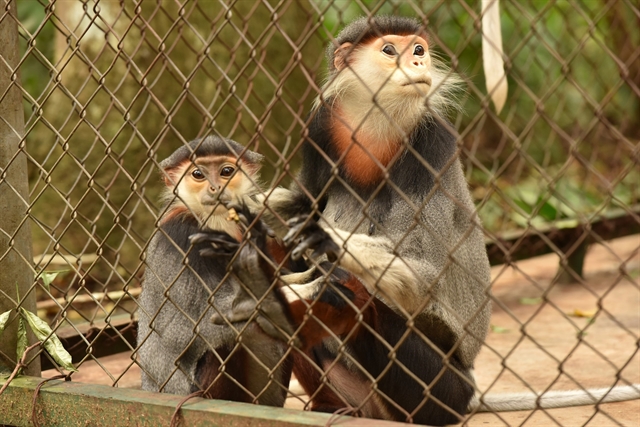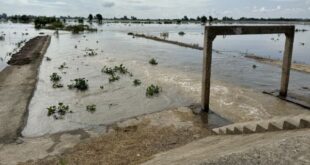
HÀ NỘI — Scientists have studied, evaluated and predicted the impact of climate change on wildlife species in Việt Nam.
The studies conducted by the National Science and Technology Programme on natural resources, environment, and climate change for 2016-20 showed that 18 out of 51 evaluated animal species were classified as seriously affected by climate change. Primates are the group suffering the most.
An assessment of 50 bird species also revealed that 16 species, distributed in areas at high risk of changes in temperature and rainfall, were feeling the impact of climate change.
Climate change seriously affected 93 out of 288 plant species examined. Đà Lạt pine is a precious and rare genetic resource categorised as a near-threatened species by the International Union for Conservation of Nature (IUCN).
According to scientists, climate change adaptation-related activities in Việt Nam are still limited. Knowledge about biodiversity conservation in the context of climate change is still relatively new for staff of protected areas and national parks.
Although there are several conservation action programmes for important species groups, such as the one for pangolins, turtles, elephants, primates, and tigers, there is none on protection for species that are vulnerable to climate change.
Given the limited resources for preservation, it is necessary to identify priority conservation areas to focus on technical, financial and technological resources to achieve high efficiency.
Twenty-six out of 105 protected areas, including the nature reserve and habitat conservation areas, are high priority. Most of them are located on the Trường Sơn Mountain Range, from Lâm Đồng Province in the Central Highlands to the north-central region.
According to Hoàng Thị Thanh Nhàn, Deputy Director of the Department of Nature Biodiversity Conservation, Việt Nam must enhance protected area management capacity for the effective implementation of adaptation plans.
Agencies should set up action plans to preserve biodiversity in the context of climate change for important and sensitive protected areas as a foundation for determining the priority or for fundraising, she said.
It was essential to devise a national conservation action plan for endangered, precious and rare species vulnerable due to climate change and submit it to the Government for approval, laying the foundation for securing investment.
Support should be provided for residents living near forests, in buffer zones of protected areas, and national parks to help them overcome the adverse impact caused by climate change, Nhàn said.
Việt Nam is raising efficiency in handling wildlife violations.
Vietnamese law enforcement agencies have rolled out stringent measures to fight wildlife trafficking, according to insiders.
In the northern border province of Lạng Sơn, many cases were brought to trial in the past five years.
The province is the first locality to handle a case involving seahorses, as listed in the Convention on International Trade in Endangered Species. A person was sentenced to four years in prison for smuggling 128kg of the fish in February.
In addition, provincial authorities handed down the longest imprisonment term of 10 years to a person trafficking 21 dried black-shanked doucs, which is the heftiest punishment ever for wildlife trade in Việt Nam.
Last year, the country recorded more than 3,700 wildlife violations. They comprised 2,594 cases in advertising illegal wildlife trade, nearly 1,000 captivity cases and over 180 for smuggling, according to the Education for Nature Vietnam (ENV).
The 2015 Penal Code, amended two years later, is a stride in handling wildlife trade in Việt Nam, with violators being arrested in 95 per cent of cases detected in 2021, much higher than the rates reported in previous years.
The ENV has proposed the Government and relevant agencies fine-tune regulations on the management of captivity in the country, especially of tigers.
Law enforcement agencies need to closely join hands to build an inter-sectoral mechanism in wildlife trade prevention and combat and work to raise awareness to reduce consumer demand for wildlife products, it said.
Sustainable livelihoods for people residing close to forest areas are also needed to ease pressure from poaching. — VnExpress News
- Reduce Hair Loss with PURA D’OR Gold Label Shampoo
- Castor Oil Has Made a “Huge” Difference With Hair and Brow Growth
- Excessive hair loss in men: Signs of illness that cannot be subjective
- Dịch Vụ SEO Website ở Los Angeles, CA: đưa trang web doanh nghiệp bạn lên top Google
- Nails Salon Sierra Madre
 VnExpress News The News Gateway of Vietnam
VnExpress News The News Gateway of Vietnam





